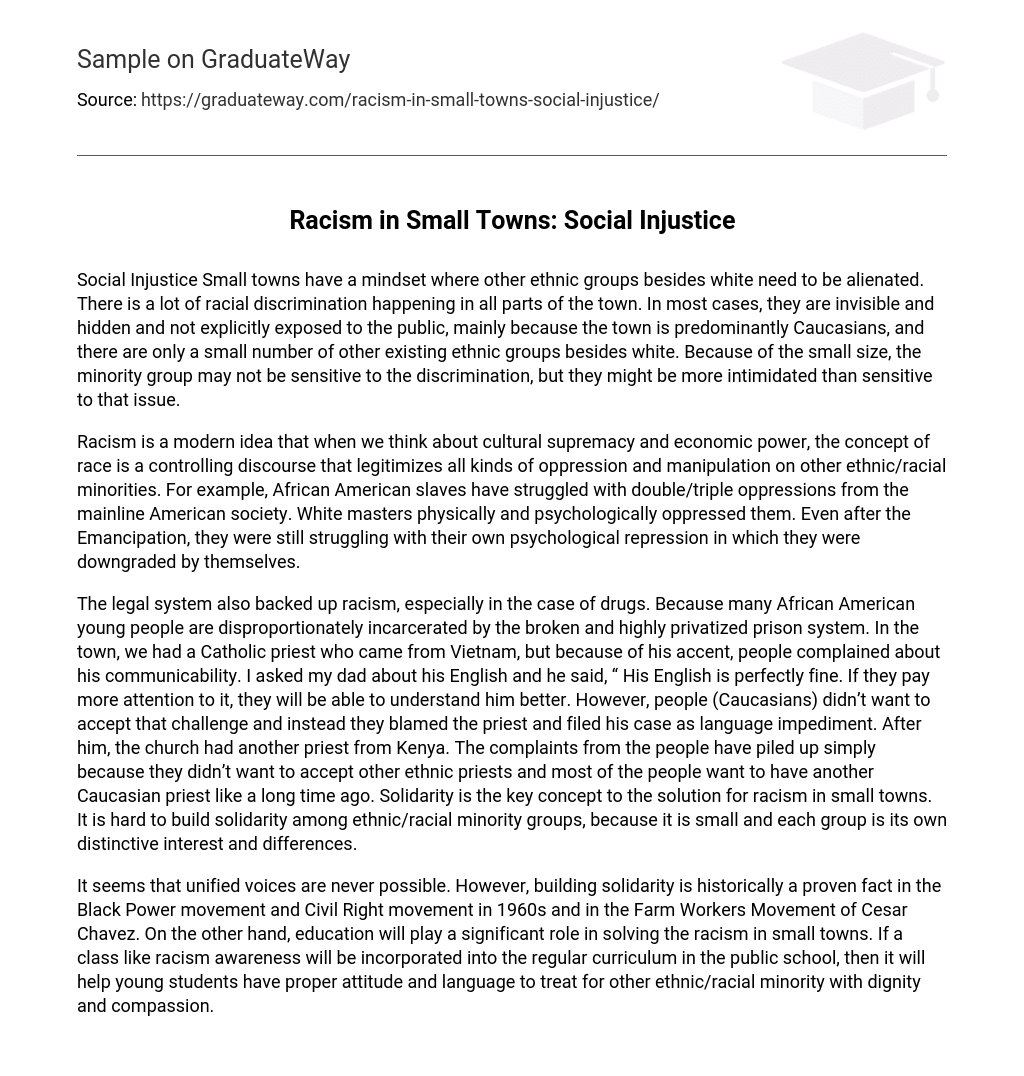Social Injustice Small towns have a mindset where other ethnic groups besides white need to be alienated. There is a lot of racial discrimination happening in all parts of the town. In most cases, they are invisible and hidden and not explicitly exposed to the public, mainly because the town is predominantly Caucasians, and there are only a small number of other existing ethnic groups besides white. Because of the small size, the minority group may not be sensitive to the discrimination, but they might be more intimidated than sensitive to that issue.
Racism is a modern idea that when we think about cultural supremacy and economic power, the concept of race is a controlling discourse that legitimizes all kinds of oppression and manipulation on other ethnic/racial minorities. For example, African American slaves have struggled with double/triple oppressions from the mainline American society. White masters physically and psychologically oppressed them. Even after the Emancipation, they were still struggling with their own psychological repression in which they were downgraded by themselves.
The legal system also backed up racism, especially in the case of drugs. Because many African American young people are disproportionately incarcerated by the broken and highly privatized prison system. In the town, we had a Catholic priest who came from Vietnam, but because of his accent, people complained about his communicability. I asked my dad about his English and he said, “ His English is perfectly fine. If they pay more attention to it, they will be able to understand him better. However, people (Caucasians) didn’t want to accept that challenge and instead they blamed the priest and filed his case as language impediment. After him, the church had another priest from Kenya. The complaints from the people have piled up simply because they didn’t want to accept other ethnic priests and most of the people want to have another Caucasian priest like a long time ago. Solidarity is the key concept to the solution for racism in small towns. It is hard to build solidarity among ethnic/racial minority groups, because it is small and each group is its own distinctive interest and differences.
It seems that unified voices are never possible. However, building solidarity is historically a proven fact in the Black Power movement and Civil Right movement in 1960s and in the Farm Workers Movement of Cesar Chavez. On the other hand, education will play a significant role in solving the racism in small towns. If a class like racism awareness will be incorporated into the regular curriculum in the public school, then it will help young students have proper attitude and language to treat for other ethnic/racial minority with dignity and compassion.





